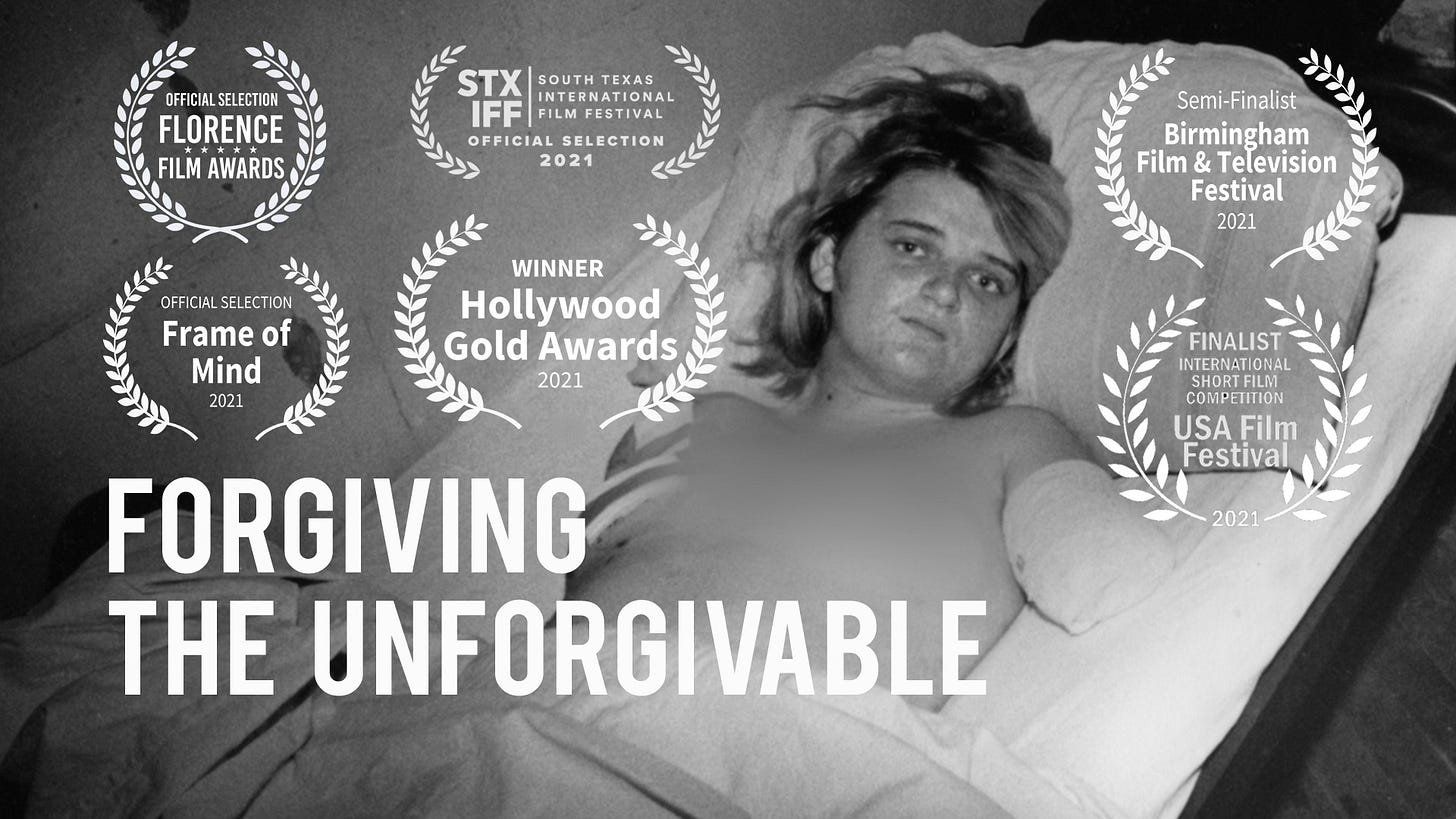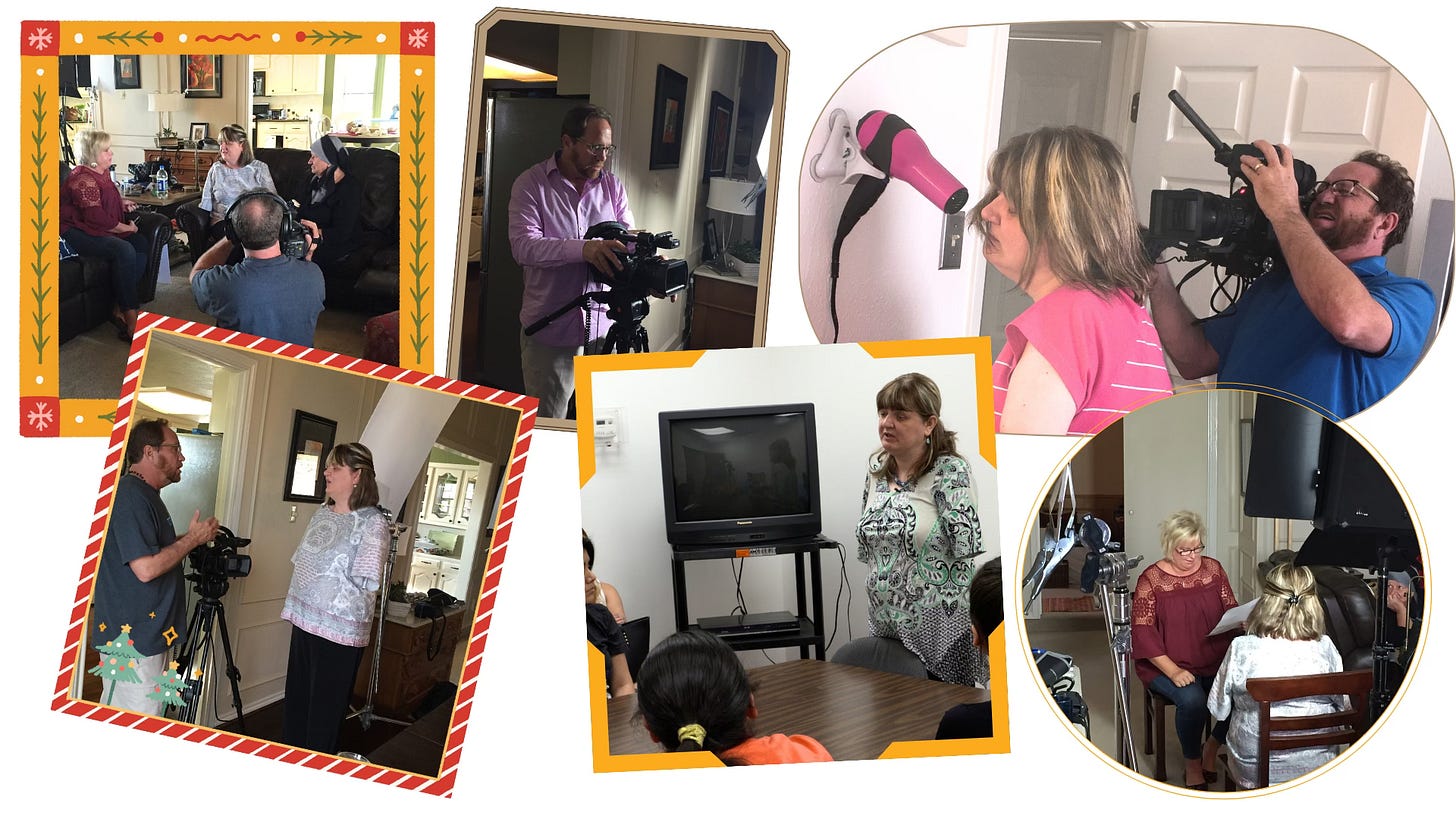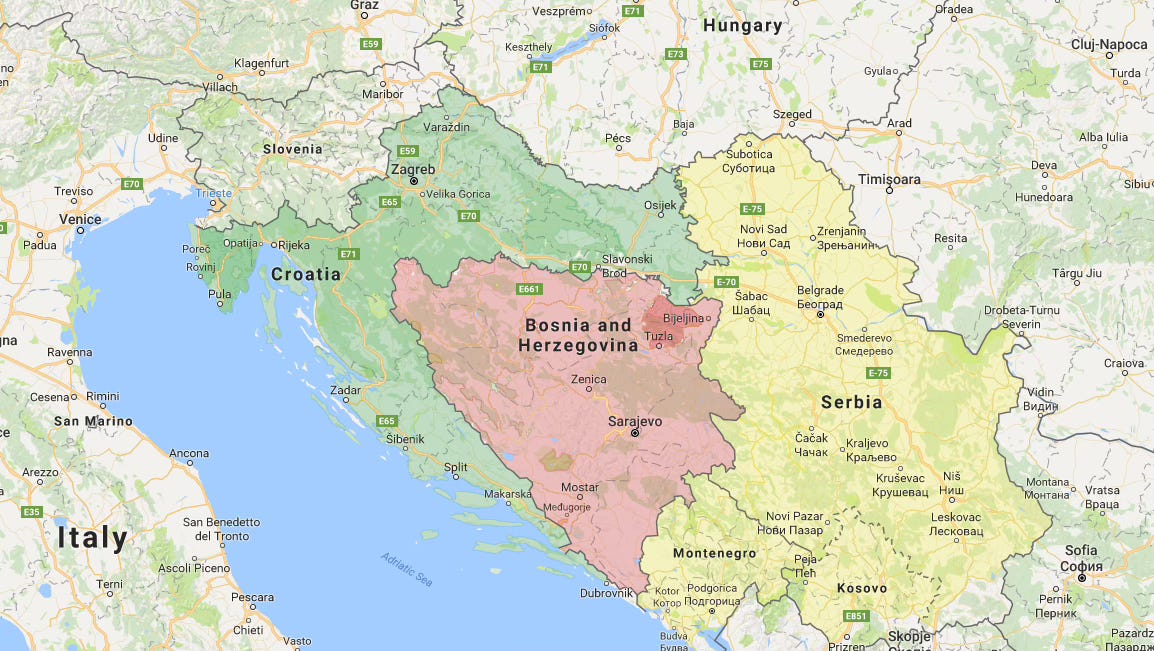After six long years of shooting and editing a zero-budget film with a skeleton crew, often just me, and using three different cameras, I finished a passion project: A documentary short. I had wanted to do one for many years, and finally, an opportunity presented itself.
Many times during the six years of working on it in my spare time, I thought about giving it up — and I would have if it were not for Belma, the film's subject, periodically calling me on the phone asking me in her Bosnian accent, “When will “MY” film be finished? I want to be famous and tell my story.” LOL. She had a story about forgiveness that needed to be told, and she was ready to get her name out there for the purposes of doing inspirational public speaking. And she still is available.
After getting to know Belma and her family, I felt a sense of obligation to them, which is what kept me going and pushing me to finish. Six years working on anything part-time was unfathomable. I had never worked on anything like this where I couldn’t finish in hours, days, or weeks. All my work was thirty-second TV commercials or twenty-minute marketing videos.
So… it was the sense of obligation that kept going. And I’m glad.
My initial intent was to produce a short documentary to enter into the film festival circuit. In the end, it did pretty well, winning Gold at the Hollywood Gold Film Festival in California, as one example.
However — I got so much more than a film out of this project. I got a whole family of friends, and a whole new understanding of war and the effects of the tragedies, especially when one country invades another. I’m much more empathetic now than I was prior to the project. And I’m extremely grateful for that, because, as a society as a whole, we’ve become compassion-fatigued, being flooded with stories of horror and death almost daily.
It’s a tragic story — yet an inspiring one regarding the power of forgiveness.
I encourage you to read my newsletter post about I wrote a year ago on the war and Belma’s story on my Substack HERE. And you can also watch the film on the link above. It’s only 30 minutes.
In short, it’s about a young woman who lost both arms in an explosion during the Bosnian War of the early 1990s — her journey and transformation from trauma, despair, and hopelessness to hope and happiness by forgiving her enemy.
I remember seeing the stories on the news in the early 90s, but didn’t pay too much attention at the time. It wasn’t until I started working on the documentary, Forgiving the Unforgivable, when I met Belma and her family and friends, that I began digging into the history of this terrible genocide.
I met and interviewed people who were in concentration camps, soldiers who fought on the battlefields, those who had lost family members, and women who were young girls at the time. The pain, anger, resentment and sadness ran deep, as I would expect. Through this process, though, I was able to see and experience fragments of the war through their eyes and experiences. It dawned on me just how horrible war is - and how horrible it is to victimize another human being.
One of my gifts
I had never met anyone from Bosnia or Eastern Europe before, so it was a delight getting to know Belma and her sweet family. Over the six years, my wife and I became great friends with Belma and her entire family. They’d come over for Thanksgiving, we’d often have get-togethers for coffee, eat meals together, and so on. I can’t say I’ve ever met a sweeter and more loving family than the Oslamovics: Belma, her husband, her two sisters, mother and father, and the extended family.
I got an inside view of a different culture, one that still has the old-time hospitable nature. And the coffee! It’s like the Turkish coffee — amazing!
I got to go with Belma and Essma (her mother) to the amputee support group and witness Belma in her element. The place where she fit in the most and felt a part of. A big part of. Belma has a great sense of humor and a very fun personality, and I got to see it in full bloom at the meetings, where there was lots of laughter.
New perspective on war and immigration issues related to war and conflicts
I was given a whole new perspective on wars. Today, I see the Ukraine war and those like it differently than I would have before my research on the Bosnian War. In-person interviews brought the catastrophes to life, where I could see the sorrow in their eyes and feel their pain gushing from their hearts. I tried to capture that in the film — but there’s no comparison to in-person interaction.
I’ve received the privilege of hearing firsthand what it was like living in the extremes of war: The lack of electricity, the lack of food, living in constant fear, and what it was like living in a concentration camp. Story after story of not having any semblance of a normal life.
I heard how the kids would risk their lives to go up in the hills to snatch the bags of food air-dropped by the United Nations. And then Belma’s story of her big dreams as a 19-year-old, only to be smashed in a matter of a few minutes. Then how the family was kicked out of their own home by soldiers, and how their adrenaline was always on high alert in fear of explosions, snipers, and soldiers attacking. It’s stuff you can’t get from the TV alone.
I look in their eyes as they shared their traumas of humanity at its worst, which has given me the gift of empathy I didn’t have prior. You’ll see what I mean if you watch the film.
They are all US citizens now, having gone through all of the procedures.
Conflict within
Prior to the war, there were people of all religions and heritage living as neighbors, having coffee every night, and coexisting in peace. When the war broke out, people reverted to their heritage, meaning the Serbs fought with the Serbs and the Bosnians fought with the Bosnians. In many cases, the Serbs, Croats, and Bosnians lived in the same apartment buildings, only to become enemies in the hallways of their homes once the war broke out.
It’s unfathomable to think that neighbors — friends — would turn on each other like that. But they did. Their affiliation with their party, their nationality, was stronger than their bond as friends and neighbors.
It’s exactly as if the MAGA extremists and liberal extremists are living as friends and in peace, then once the war breaks out, they fight for their respective sides. Friends and neighbors become enemies, killing each other, all because their affiliation is more important than other people. Other humans. And a key factor in the conflict was propaganda. Yes, misinformation and disinformation. It was ramped, and always is during times like this.
History is filled with examples. Whether it’s Russia, Nazi Germany, Mosolini’s conflicts, they all utilized propaganda in the early days, controlling the messaging. As one who watches ALL network news, I see who is spinning, twisting, and molding the truth and facts firsthand. I can tell you, it’s not the mainstream, it’s the extremist.
Look for the ones preaching hate, separation, and making light of others’ suffering. Their main focus is “us versus them.” They demonize the so-called opposition.
We should all get our news from many sources. Especially these days, with the continued fragmentation of news outlets.
With that said, 10 years ago, I would NEVER have said this could happen in the US. I don’t say that anymore. The propaganda machine is out of hand. And this project gave me insight into the worst of humanity stimulated in part by propaganda.
Conclusion
In the six years of working on this film, I learned so much about culture, people, unwarranted war, love, hate, self-centeredness, and selflessness.
Most of all, I made friends with people from a faraway land that I barely knew existed. As our families blended and bonded over our humanity, our commonalities, and, of course, our love for Bosnian coffee, we learned about each other’s pains and joys, differences in religion, and favorite foods. I learned that regardless of where we are from on this beautiful planet of ours, people in general are good, loving, and caring. We all have similar aspirations for ourselves and our children. While the cultures vary in many ways — I realized that’s what makes the world great — full of color, contrast, and beauty. It’s also what makes America great.
And last but not least, I made a friend who taught me about forgiveness. And more importantly, how to forgive the unforgivable.
How cool is that?
.












Share this post